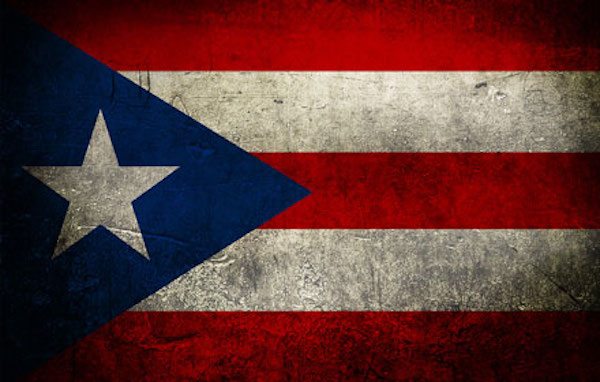

On Tuesday, Puerto Rico Governor Ricardo Rosselló urged members of the NAACP to pass a resolution supporting the Puerto Rico Admission Act, which would make the island the 51st state by 2021. Members voted in favor, officially endorsing Puerto Rico’s path to statehood after hearing Rosselló speak passionately about Afro-Latinx representation, civil rights, and colonialism. By Thursday, the NAACP had rescinded its position, even though Rosselló and his Puerto Rico Shadow Congress insist they haven’t.
Important to note that @NAACP spokesperson told @ElNuevoDia that it has rescinded its support for #PuertoRico statehood.
“Una portavoz de NAACP dijo a El Nuevo Día que la declaración anula su previo respaldo a la estadidad.”
LINK: https://t.co/olpMgnFYfu https://t.co/FlZh4HgTF1
— Julio Ricardo Varela (@julito77) July 19, 2018
During his Tuesday speech, Rosselló said all of the right words to garner support from a civically-minded crowd and praised the legacy of Dr. José Celso Barbosa, an Afro-Puerto Rican and father of the statehood movement. However, his speech used co-optive language without providing his audience the full history and scope of why statehood is so complicated.
His statement, “colonialism is political segregation and it has no place in our country” is a poignant reflection of U.S. territories’ relationship to the U.S. government but should not be the foundation for statehood. Puerto Ricans serve in the U.S. military, cannot vote for president, and are not afforded the same federal healthcare benefits as citizens living on the mainland. When most people learn of this extreme disenfranchisement, they jump the bandwagon to support statehood. What’s missing in this analysis is an understanding of colonialism.
Colonialism is both a process of land seizure and of cultural hegemony that removes sovereignty from a people. First, Puerto Rico was a colony of Spain for 400 years. Its location in the Caribbean, like many other islands, made it a prime location for the African slave trade. Originally inhabited by the Taínos, Puerto Rico became a mestizo, or mixed race, island of indigenous, African, and European ancestry, making colorism and racism two forces that still incite discrimination against Afro-Puerto Ricans today.
Later in 1898, as a result of the Spanish-American War, Puerto Rico became property of the United States. Its location was also ideal for a U.S. military base during both world wars, especially as a strategic location en route to the Panama Canal. Needing more men to join the U.S. military, the federal government imposed (and others say granted) citizenship on Puerto Ricans so they would become eligible for the draft. In the 1970s, the federal government participated in the forced sterilization of Puerto Rican women. In the 1990s, Wall Street exploited Puerto Rican municipal bonds, exacerbating the financial crisis we know today. And as of 2017, Puerto Rico was not only devastated by Hurricane Maria, but also by the Federal Emergency Management Agency, which recently admitted to being ill-prepared to administer disaster relief on the island.
With this record of the U.S. exploiting Puerto Rico’s resources, it is important to question how statehood (the joining of the very nation that incited many of the island’s problems) is anti-colonial. While statehood would provide voter representation in the federal government, it would not undo these wrongdoings of colonialism.
Voting is one of many components of a working democracy. Community-driven public policy, participation, and decision-making capacity are key characteristics of authentic democratic representation. As seen in the 2017 Puerto Rico referendum vote on statehood, only 23% of voters turned to the polls compared to 50-80% who typically turn out. Citing the 2017 referendum as a democratic process perpetuates colonial practices by removing sovereignty from a people and not presenting the entire landscape. It is more palatable to support voting rights than a decolonization process of reparations for Puerto Ricans, let alone their sovereignty.
Rosselló used his platform to push one agenda rather than educate people on the actual legacy of colonialism. Rather than call for statehood on the basis of voting rights, he could have used his soapbox to urge the NAACP to help end the Jones Act, which stunted Puerto Rico’s economy by prohibiting imports from non-U.S. shipping companies and vehicles, or push for FEMA accountability policies in wake of Hurricane Maria’s devastating aftermath.
The governor’s call for solidarity among communities of color to support Puerto Rico’s wellbeing is urgent, but what solidarity actually looks like in practice must move beyond a call to action for the Puerto Rico Admission Act and include an analysis of power and how our histories are intertwined. Deciding between statehood, independence, or maintaining current commonwealth status is the most divisive governance issue among Puerto Ricans and cannot be solved at a convention.
This analysis of colonial discourse does not endorse one solution over another, but rather addresses the rhetorical technique of misusing anti-colonial slogans to garner blind support from allies.
***
Amanda R. Matos is a proud Nuyorican from the Bronx and co-founder of The WomenHOOD Project. She also writes columns for Feministing. Follow her on Twitter @Amanda_R_Matos.


